What’s your number?
By number, of course, I’m referring to the number of languages you speak.
Whether you’re an aspiring polyglot or can already speak multiple languages, you probably have some serious language learning goals.
You probably also know that those goals can’t be reached overnight.
Polyglots, people who are wise in the ways of foreign tongues, are uniquely dedicated people.
Like I said, you’ve got a serious language goal standing before you here. That means you’ll be needing some serious assistance. Rather than trying to do everything in isolation, turn to expert advice from the best and the brightest polyglots out there!
You may already have started acquiring essential listening skills and learning shortcuts to help you absorb languages faster than ever, but if you search your feelings you’ll realize you haven’t yet reached your destination. There’s a lot left to learn.
We’ve taken it upon ourselves to scour the far reaches of the internet to find the best blogs written by polyglots. They are chock-full of compelling material, lessons learned firsthand and specialized learning tricks. By reading about the experiences of these intelligent, clever folks, you’ll be sure to avoid major mistakes and pitfalls while delivering a massive boost to your overall language learning skills.
37 Inspiring Polyglots Every Language Learner Should Be Following

Whoever says language learning is tedious has obviously never looked at Language Mastery. This outstanding blog by John Fotheringham (who speaks Chinese and Japanese) has wrapped up a lot of knowledge into a neat series of blogs that help the language learner with advice, guidance, tips and strategies. They resonate with his belief that languages cannot actually be taught and that fluency is dependent on listening, speaking, reading and writing a language. The articles are thoughtful and comprehensive, packed with lots of useful information. Previous topics have included a look at the habits of highly successful language learners, reviews of language products and the obstacles that prevent people from becoming fluent. Some of the posts include John’s podcast interviews with other language bloggers, teachers, polyglots and linguists. They are unmissable treats!
We are all hard-wired to pick up the languages around us (even as adults) if you get enough input and output. The key to staying the course is actually enjoying the process by picking materials, topics, and activities that are inherently enjoyable.
– John Fotheringham

Looking for a smart and entertaining way to learn a new language? Well, park your brain by the Mezzofanti Guild. Applied Linguistics graduate Donovan Nagel speaks several languages including Korean, Irish Gaeilge, Egyptian and Classical Arabic. His personal goals are to learn one language each year and to help other language learners. He does so with plenty of informative articles such as “How to Improve Language Fluency When You’re at a High Level” and “11 Unmistakable Characteristics of a Damn Good Language Learner.”
The website has a clean and neatly-ordered layout with good use of white space, images, font and headlines. This helps to make it an easy read. The blog’s intriguing name comes from Giuseppe Gasparo Mezzofanti (1774-1849), an Italian polyglot and priest who spoke more than 35 languages.

Whether you’re learning, teaching or actively using a foreign language, Wiktor Kostrzewski’s website is well worth bookmarking. This superlative blog is packed to the rafters with language learning solutions and inspiring and informative articles. Among the enticing standout features is a weekly collection of links to useful resources, glossaries, reading lists and the “Guerrilla Language Learning” online course. This contains lectures, live sessions and motivational tips designed to enhance the language learning experience. More than 2,000 students are currently enrolled! If you’re wondering about the name 16 kinds, it comes from the myth that Eskimos have 16 words for snow.

Language guru Benny Lewis has a deep canyon of knowledge that thousands of students have enjoyed exploring. The well-known Irish polyglot has filled his extremely popular Fluent in 3 Months website with a plethora of language hacks designed to accelerate your learning of any language. There are outstanding lessons and articles about how to learn better and an active forum with lots of questions and answers. In addition to posts that are applicable to all language learners, there are some language specific articles such as “How to Read the Russian Cyrillic Alphabet in Just a Few Hours” and “Is Japanese Hard? Why Japanese is Easier Than You Think!” For those who are thinking about packing their bags and travelling, there are some useful travel ideas too.
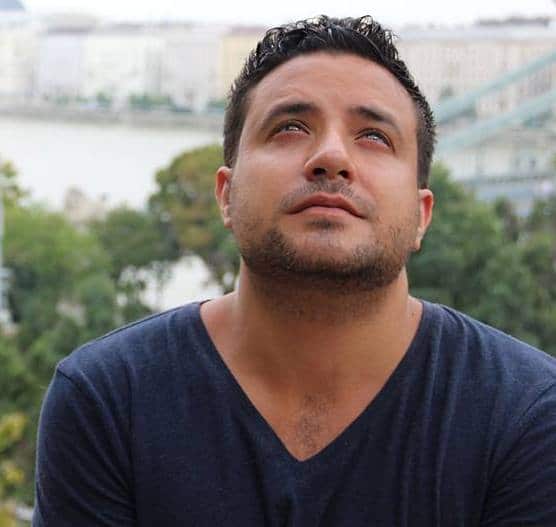
The Polyglot Dream is a terrific resource by native Italian Luca Lampariello who is fluent in ten languages. He is on a mission to show people how to learn languages, based on his experience of learning entirely in his home country, not through travel to foreign destinations. His enjoyable and highly instructive posts are written in several languages including English, Russian and Italian. Rich with valuable information, they cover a multitude of topics such as language learning techniques and language learning philosophy. Here you will come across such topics as studying versus learning, choosing an accent and how to develop advanced fluency. There is also a podcast series in Spanish that is supported by a transcript in English.
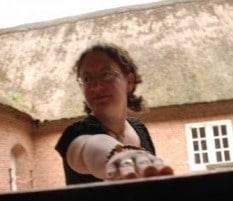
Multilingual Living is a wonderful idea for a blog. The website is aimed squarely at parents who are raising bilingual or multilingual children and its posts offer advice, tips, motivation and inspiration. The articles are well written, straightforward and cover a lot of ground. Previous topics that the blog has touched upon include “The Benefits of Multilingualism,” “Ten Reasons Why You Should Marry a Foreigner” and “Mixing and Matching Cultures for Christmas.” The site also features a discussion forum for members to swap stories and share advice.

Simon Ager’s Omniglot Blog is a fascinating and entertaining mix of language learning goodies. He includes personal experiences, articles, tips, formal lessons and explanations of idioms. One of the most interesting features is the regular language quiz he offers here. Readers have to guess the mystery language and where it is spoken, after hearing a short audio clip. In the “Favorite Words” section, you can learn about Simon’s favorite words and phrases. They interest him either because of their sound or meaning. If you’re wondering about the term “omniglot,” it was coined by Simon to describe someone who has a command of all languages.
Learning a language is a way to make connections with others. Even a few words can open doors, hearts and minds, and the more you know of a language, the deeper and more meaningful those connections can become.
– Simon Ager

Harmonious pairings (such as ice cream and jelly, or the Wimbledon tennis tournament and strawberries) have been joined by a recent arrival – media and language learning. Susanna Zaraysky’s insightful blog has a unique selling point: many of the articles are focused on using music and media such as TV and radio to learn languages. As someone who has studied eleven languages and speaks eight of them, Susanna has a deep pool of knowledge from which to draw. Some of the posts feature her travel experiences and many include music videos and clips from her TV appearances and presentations as well as interviews with fellow polyglots. Among the blog category topics are the benefits of multilingualism, multilingual women and how to learn languages with songs and other media.

While there aren’t any super easy shortcuts to attaining real fluency in a foreign language, Olly Richards’ inspirational blog posts cover topics and tips designed to get you there quicker. He’ll help you reach your destination ahead of schedule, but nothing will be missed along the way. The polyglot can speak seven languages and his posts touch on principles for learning, personal experiences and salutary lessons. The crisply written articles are well-structured with short, sharp paragraphs, and they make good use of big images. Among the previous blog posts are titles such as “The Psychology of Speaking Another Language” and “8 Ways to Apply the 80/20 Rule to Language Learning.” Many of the articles attract comments and Olly is an active correspondent.
Language learning really isn’t any more difficult than acquiring any other skill, whether it’s playing the piano or cooking. A small amount of consistent daily practice, over time, plus a willingness to communicate and spend time with native speakers, is most of the battle.”
– Olly Richards

Fun, compelling and incisive are just a few of the adjectives that aptly describe Lingholic. The exceptional blog is your regular fix of language learning treats from polyglot Sam Gendreau. There are priceless tips, valuable lessons, powerful strategies and expert advice that are drawn from his own experiences as well as conversations with other polyglots. Sam’s writing style is fresh and energetic with a nice lightness of touch. There is a lot of good material here with an archive that goes back to December 2012. Diving into the website will lead to such topics as how to think in a foreign language, memory strategies to supercharge your learning and what actors can teach us about learning a foreign language.

One thing about polyglots is that they can easily impress the socks off you with their ability to speak like natives in numerous languages. Conor Clyne’s proficiency in almost ten languages is on display here through videos and articles in several languages including English, Russian, Italian, Spanish and Dutch. He is the self-titled Language Tsar who travels the world writing about his experiences. Not only does he open a nice window on other cultures and destinations, but his illuminating blog also features lots of good, common sense advice as well as the language learning tips he has developed that have served him well.

This is a fascinating and highly educational website with four interlinking blogs related to multilingualism and its applications in everyday life. The Planning and Designblog focuses on how multilingualism works in real life with case studies. It also holds articles on language in pop culture and how laws affect multilingualism. Extreme Language Learning features stories, tips and guidance on learning languages, while World Music has videos and recordings of musical performers from around the world. The fourth blog section is Social Justice, in which posts examine the languages spoken by people in some of the world’s more troubled regions. The website is not only a fantastic resource for language learners, but also an intriguing perspective on our planet.
For me, I study languages to make the world feel welcome. I want to reach over that gap and put people at ease. I believe that with good planning and good design we can make everything more accessible.
– J Snider

Ron is a US-based professional translator who set up Language Surfer to encourage others to enjoy the exciting ride that is learning a foreign language. There are compelling how-to’s, incisive book reviews and indispensable motivation tips as well as articles about Ron’s own experiences with learning languages. In short, there is much here to help any student. The posts have a good, well-ordered structure with lots of bullet points and subheadings, occasional inclusion of videos and always big, eye-catching pictures.

What a fascinating idea for a blog! In 2009, Ellen Jovin decided to go on a linguistic adventure in her hometown, New York City. Her goal was to learn as much as she could about the languages spoken in and around the Big Apple. Her gripping blog chronicles her Herculean challenge that so far has included 18 different tongues including Russian, Japanese, Polish, French, Dutch, Yiddish, Persian and Hindi. This has provided her with an incredible breadth of knowledge that she draws from to offer advice, tools, strategies and warnings about things to avoid. Also included are reviews of some of the study aids she has used to help her in her quest.

Chris Broholm doesn’t make any wild promises that you’ll be fluent in your chosen language in record time, but what he does deliver is a wealth of resources to inspire and help you on your language learning journey. This aspiring polyglot who is currently proficient in three languages details what works and what doesn’t for him and uses this as the basis to teach others. Along the way, he talks about the mistakes and problems he has encountered and reviews products and resources. His site also features a regular podcast which highlights inspirational language teachers, articles, resource pages and newsletters. Since he is currently on a mission to learn more languages, he always has insightful things to say that are relevant to fellow learners.

If there’s such a thing on the web as a page-turner then this is it – informative pieces that compel you to read on. Martin Boehme created Powlyglot to share what he has learned and continues to learn when studying languages. He speaks English, Spanish and French and has experience with several others including Mandarin Chinese and Japanese. He has distilled some of his knowledge into useful articles that are clearly, simply and cleanly presented with lots of tips and tactics. There’s advice on how to get the most out of language classes, motivational pointers and fascinating posts about his own personal experiences studying new languages.

Noel van Vliet is dedicated to helping you learn your new languages better and faster. As someone who is highly proficient in three languages, he has a lot of great information to offer. Furthermore, he’s a powerful advocate for the life-enriching benefits of learning another language. His passion is evident in his writing and the care with which he has put together this highly instructive blog. Smart Language Learner is a real treat that attracts a large audience to its two key features. They are the “Case Study” section where Noel tests language learning methods, techniques and products and details the results. Then there is “Ask the Experts” where readers are invited to send in their language related questions. The best and most frequently asked are answered in subsequent posts.

Yes you can be, with the help of this informative and entertaining blog written by Kerstin Hammes, a native German speaker fluent in several languages. Her posts introduce readers to new ideas, offer motivational tips and review resources and techniques. She takes special care in detailing her own experiences of learning to speak and write in foreign languages. Her engaging writing style is a powerful magnet that draws in the reader. There’s a reason why she’s gotten so popular – readers really profit from her vast experience and savvy advice.

Beyond the blog’s cute title is a rich world of resources for the student of foreign languages. Currently, the site features 23 free online introductory courses to get the beginner up and running with the basics of their chosen language. Among the currently available languages are French, Dutch, Japanese, Afrikaans and Norwegian. Each course features a small handful of lessons that use such techniques as mnemonics and creative explanations. Additionally, I Kinda Like Language has an active blog with a series of articles that review techniques, tools and books, as well as provide handy language learning tips and plenty of fresh motivation. They also feature personal experiences of getting to grips with a new language.

When fascinating articles meet compelling videos you have a fabulous formula for an excellent language blog, and that’s whatNon-Stop Travelling delivers. Dutch entrepreneur and polyglot Jan van der Aa has traveled to over 75 countries and speaks more than seven languages. He draws out a lot of great information from his travel and learning experiences and packages this knowledge into very readable articles. They are augmented with snaps from his journeys and interviews with some of the people he meets. Videos conducted in foreign languages are subtitled in English and some chart his own attempts at learning a new language.

Randy Hunt is eager to learn a new language to fluency level every year. And he wants to bring you along with him for the ride. Strap yourself in and enjoy the trip! You may not want to learn a new language every 12 months, but whatever your language goals, there’s a large sack full of advice and tips for you over at Yearlyglot. Randy’s overarching aim is to become the citizen of the world he always dreamed of being. The articles are easy to follow and. while many are useful to every language learner, some are about a specific language. Randy’s enthusiasm and vast experience are among the blog’s key selling points, but so too are some of the attention-grabbing article titles such as “Brute Force Greek” and “How Can You Learn When All You Do is Study?” Clearly, there’s a lot of thought at work here.

Language coach Aaron Myers has come up with a pure gem of a blog, dedicated to informing and inspiring any language learner no matter what stage they’re at. His own journey started in 1998 with Spanish while living in Mexico, and continued with Turkish when he moved to Istanbul. By drawing on his own experiences, he is able to offer perceptive posts with heaps of advice, tips and resources. There’s also a wonderful video series of interviews with language experts and language learners and a free 10-week email course designed to help the self-directed language learner.

With article titles such as “How to Think in Your Target Language” and “Stuff that Didn’t Help My Language Learning” you know you’re in for an exciting and enlightening time with How To Languages. The blog is run by Bill Price who describes himself as a “fanatic language learner” and this enthusiasm comes across in his lively articles and videos. Throughout the site, there is a plethora of tips and guides that demonstrate how best to learn a language, any language. There are also language myth busters pieces, exercises, success stories and lots of food for thought.

Taiwan-based Teddy Nee speaks no fewer than six languages and has turned his large reservoir of knowledge into a wonderful learning resource. Once you log on for the first time, you’ll want to keep coming back for more. Nee’s site encompasses numerous sections such as videos of polyglots in action and interviews with language learners. In “Perspectives,” guest bloggers write about their language learning experiences and provide short lessons. “Yearbook” is a very neat way of archiving blogs from previous years. They are compiled into an easy-to-read magazine style format. Another great touch is the regularly updated list (with hyperlinks) of the 5 most interesting and relevant articles that Nee has read. The list can be seen at the top of every page on the site.
Knowing more languages lets you explore other parts of the world from different perspectives.
– Teddy Nee

Pick up some great language learning lessons from a champ! RawLangs is the language blog of Alex Rawlings, who in 2012 won a national competition to find the UK’s most multilingual student. Whether you are a polyglot or attempting your first additional language, there is much here that will inspire and inform. There are strategies, essential facts, lots of useful tidbits of information and articles about Alex’s own experiences, including his use of foreign languages when abroad. Some of the posts feature videos and occasionally there are interviews with other language experts.

Point your mouse toward the Babel Timesand you won’t be disappointed! Read about Emily’s thrilling quest to learn all of the official languages of the United Nations (plus German) to native-like fluency. This is something she hopes to achieve by her 35th birthday which will take place in 2019. In blogging about this mammoth quest, she provides lots of language learning guidance and interesting personal experiences and insights. There are also reviews of native content such as books, movies and music. Posts are filed under two categories – “Language Learning” and “Living Abroad.” In the latter, there is lots of information about moving to and residing in a foreign country.
Focus on your reasons for learning a language and you will be able to find joy in even the most frustrating moments of language learning.
– Emily Liedel
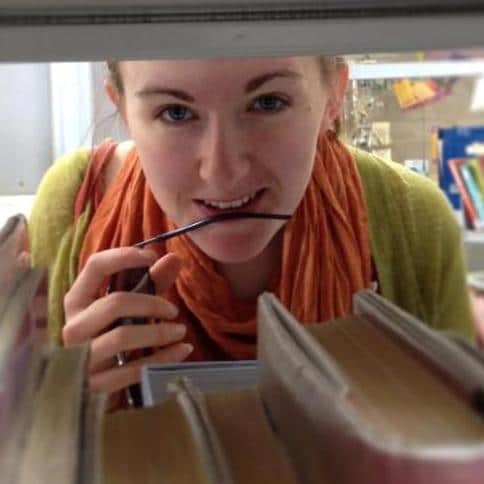
Lindsay Does Languages arrived on the internet with a bang in 2014, a colorful, entertaining and informative blog devoted to all things language learning. The site is operated by UK native Lindsay Dow who speaks several languages including French, Spanish, German, Dutch, Italian and Portuguese. There are tips, lessons, reviews of apps and other tools and lots of guidance on how best to learn languages. Just as digestible as the words is the blog’s layout. It is very easy on the eye with good use of pictures and graphics. The reader is instantly drawn to her prose style which is informal but thorough, and her videos are as entertaining as they are instructive.

US-based entrepreneur, language teacher and learner David Snopek set up LinguaTrekto provide lots of language learning advice and motivation based on his experiences of learning Polish by non-traditional means. Articles are written in English, but there’s also a generous smattering of videos in Polish. The three principle blog categories are “Language Learning,” “Personal,” and “Culture” where David writes about Polish and US culture. Although many of the posts are about learning Polish, there is much that is applicable to learning any language with article titles such as “How to Overcome your Fear of Speaking” and “The Importance of Listening.” All feature oodles of good, common-sense advice.

Richard Benton loves languages so much that he can speak four of them fluently (Russian, Ukrainian, French and German). He’s proficient in three more and has a basic level in an additional two. Pretty impressive stuff! With a PhD in Linguistics and Ancient Hebrew, as well as several years of university level teaching experience, he has a lot of wisdom and knowledge to impart. He writes engagingly about his own language learning experiences while at the same time providing a few helpful tips. There are also inspiring articles infused with the joy that is gained from speaking a foreign language. If ever you feel frustrated at your progress, or are downhearted at not being able to speak as fluently as you think you should, a detour to Loving Language will rekindle your desire to learn.

Fluent Forever offers an immense collection of language learning riches to happily spoil the student. Classical singer, author and language expert Gabriel Wyner started Fluent Forever to give language students a big step in the right direction on their path to achieve fluency in their target language or languages. His posts are informed by the learning methods he developed when gaining fluency in French, Italian, German, Russian and Hungarian. Gabriel’s writing style is fresh and engaging and his articles cover such topics as hacks for difficult to pronounce words, efficient ways of learning vocabulary and reviews of language learning resources. There’s a lot of good stuff to dive into here as the archive goes back to March 2012.

Self-confessed language geek Josh shares his experiences of language learning with an eloquent blog that highlights successes, failures, things to watch out for and reviews of language learning tools. Along the way are a few tips and pointers that are well worth paying attention to. There are no fancy pictures or graphics, just lots of great personal insights and very useful information. Language Geek’s strength relies on Josh’s enthusiasm for languages and his ability to write well and knowingly about getting to grips with a foreign tongue.

Hungarian-born teenage language addict Bálint speaks Hungarian and English. However, he wants to be able to communicate in several languages so he has embarked on an ambitious learning program. His blog is filled with a mixture of articles covering numerous themes including reviews of software and websites. In “My Projects” Bálint writes about some of the things he gets up to in his spare time such as learning the Hungarian Runic script and his first attempt at handwritten Georgian. These are the strongest elements of the blog, where he details clearly what he’s experiencing as he tackles his studies, illustrated with some of the material he is using.

Have a pen, notebook and some popcorn handy when you visit Polyglot Nerd. This excellent site is run by two language learners, Nathalia and Alejandra. The website features blogs in three languages – English, Spanish and Portuguese – and a forum for language learners to connect and discuss related topics. There is a small collection of blog posts that offer advice on how to learn a language and lots of reviews and trailers of foreign language films. Watching movies in another language is a good way of immersing yourself in how it is spoken by native speakers. Polyglot Nerd features trailers of Danish, Arabic, Italian and Dutch movies.

At the time of writing this article, the most recent blog on Street-Smart Language was in September 2013. Though it may appear inactive at the moment, there is still a fantastic archive of highly informative articles on language learning topics. They cover reviews, tips and personal experiences, all written in a good, conversational style with lots of bullet points and occasional inclusion of videos. Among the attention-grabbing topic titles are “How Many Words Do You Need to Know in a Foreign Language?” and “Stopping the Study Abroad Fail-Train.”

Berlin-based Judith Meyer speaks 12 languages including Latin, English, Indonesian, Mandarin Chinese and her native German. She has created a fascinating blog full of magnificent material and useful advice that are filed under two principle categories – “Language Advice” and “Personal Posts.” Some of the articles are related to specific languages, such as “How to Memorize Chinese Characters” while others are applicable to the student of any language such as “How to Find Time to Learn Languages.” Judith’s posts are well structured and formatted, easy to read and loaded with lots of great points that are succinctly made.

Steve Kaufmann is a former Canadian diplomat and co-founder of LingQ, an online language learning system. Until the age of 17 he could only speak English, but today he can speak 12 languages and shares his passion and enthusiasm for language learning via the Linguist on Language. He writes about his experiences and offers tools and resources that the language student will find useful. Articles vary greatly in length, from a single short paragraph to lengthier pieces, and many of them feature videos of Richard speaking directly to camera. Most are in English, but a handful of posts and videos are in different languages.
One of the most exciting aspects of this blog is the 90-day challenge, a period of incrementally increasing learning. Richard originally developed this to improve his Korean fluency. Although it is now over, readers can delve into the archive to watch videos, read articles and learn lessons from his experience. The challenge was shared with some of his followers who also scaled up their target language learning progress for 90 days. In fact 2,684 people took part and the most popular languages studied were English, French, Spanish, German and Russian.

Polyglot Richard Simcott describes himself as a life-long language learner. Publisher HarperCollins describes him as one of the most multilingual people from the United Kingdom. In short, he has a lot of skills and experience to offer the language student, and his captivating and perceptive blogs draw the reader in with useful learning strategies, tips and plenty of personal experiences. Occasionally, they are interspersed with videos where he either talks directly to the camera or interviews other polyglots, language experts and bloggers. His articles are thorough and cover a lot of ground, with clear explanations that lead the reader gently through the topic that’s being addressed.
At the time of this article’s publication, Richard’s most recent blog post was published in July 2012. Although, at the moment it no longer seems active, there is so much great material here that is of benefit to see what’s already been posted.
If you liked this post, something tells me that you’ll love FluentU, the best way to learn a language with real-world videos.
Experience language immersion online!
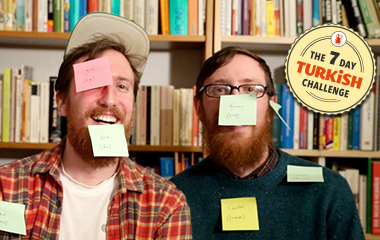










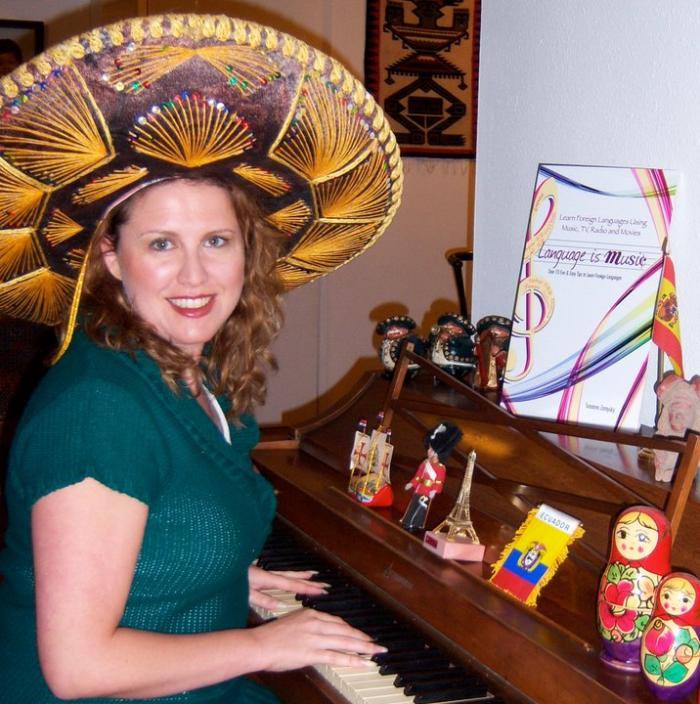








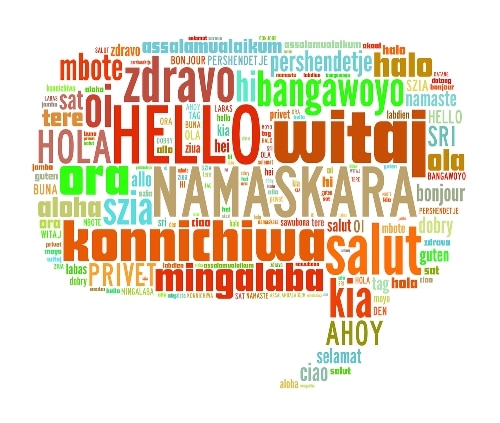







































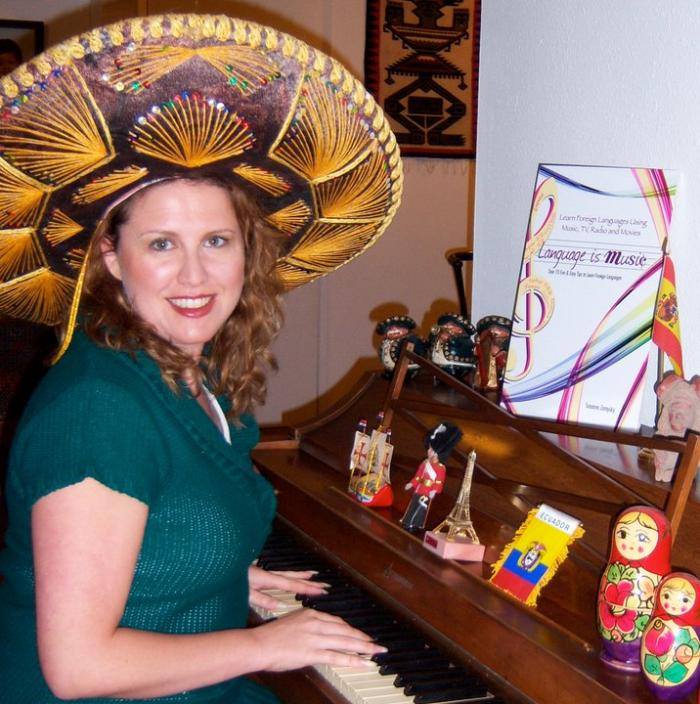
 1. “Make at least two hundred mistakes a day.”
1. “Make at least two hundred mistakes a day.”
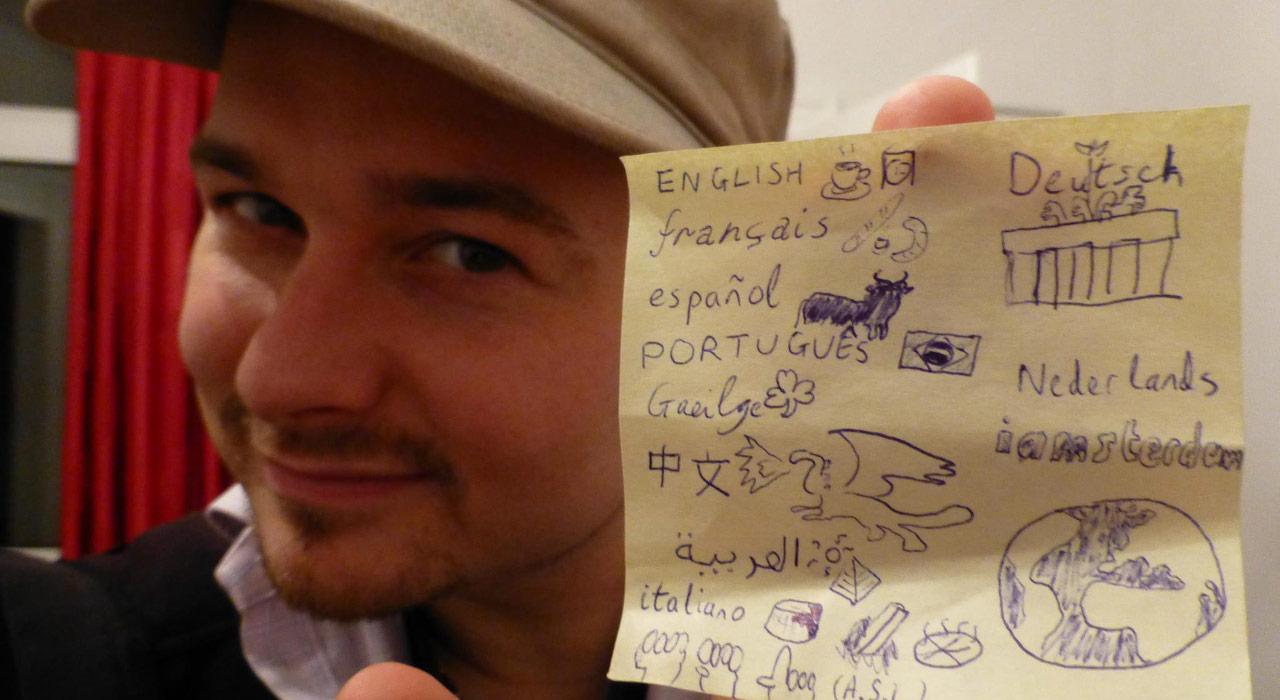
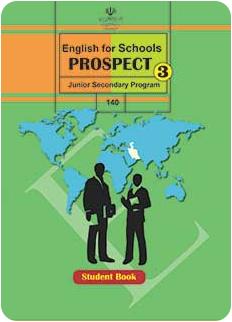

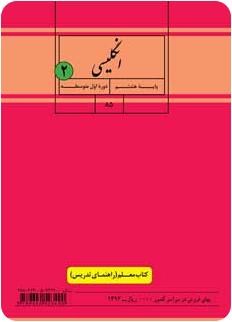







Comments are closed.